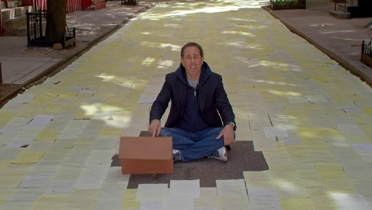Seinfeld jokes, astrophysics & facing up to uncertainty
- Dec 20, 2023
- 3 min read
"Uncertainty is an uncomfortable position. But certainty is an absurd one.”
— Voltaire
Jerry Seinfeld began his career in stand-up comedy back in 1976. Since then, up to the present day, he's maintained a routine of sitting down with a yellow legal pad and crafting jokes on a daily basis.
With 47 years of experience in honing his comedic skills, he was recently asked:
Interviewer: "How can you be sure that a joke will succeed on stage?"
Seinfeld: "You can't."
Interviewer: "Do you rely on self-trust?"
Seinfeld: "No, there's no trust. It's a grueling process—more often than not, about 80-90% of the time, it falls flat."
Interviewer: "But I have recently witnessed Seinfeld's performance at The Beacon Theatre in New York City, where the audience seemed to respond with nothing but laughter!"
Seinfeld: "What you observed is the result of what has worked for me. However, what you witnessed represents only about 1.5% of the material I've experimented with.
Precision or uncertainty?
Author Morgan Housel highlights the importance of distinguishing between two distinct categories: fields characterized by precision and fields characterized by uncertainty.
For example, computer programming, software development and astrophysics falls into the realm of precision. If you have ever struggled writing code you’ll know what I mean. Same goes for developers. Bugs or errors in code can introduce uncertainty, but the field's emphasis on precision, careful planning, and rigorous testing aims to minimize such issues. With the right coding practices and tools, developers can achieve a high degree of precision and reliability in the software they create.
Likewise, astrophysics upholds precision to a maximum number decimal points as possible. This is evidenced by NASA's remarkable accuracy in predicting the New Horizons spacecraft's arrival time at Pluto on July 14, 2015, which was just a minute off from the forecast made in January 2006—reaching a staggering 99.99998% accuracy.
On the other hand, comedy resides in the domain of uncertainty, where even a skilled comedian like Jerry Seinfeld's predictions are accurate only to the extent of 1.5%.
It would be ideal if more aspects of life resembled astrophysics, where one could be 99.99998% certain of success before venturing into endeavors like starting a business, writing a book, or changing careers.
However, as Housel notes, most aspects of life resemble comedy—fields of uncertainty predominantly shaped by decisions that cannot be neatly explained using precise formulas, akin to the complexities of a voyage to Pluto.
Dealing with a world of uncertainty
In a world characterized by uncertainty, where most facets of life align more with the unpredictability of comedy than the precision of computer programming or astrophysics, one requires the ability to confront and persevere through doubts and uncertainties.
In the case of Seinfeld, it is noted that while many people can possess humor and craft jokes, only a select few can confront the daily, somewhat unsettling nature of not knowing for sure.
No matter how much information you collect, there are bound to be aspects that remain beyond your knowledge. That's perfectly fine; recognizing your limitations and contemplating how these gaps might influence the situation can be beneficial as well.
Here are a few basic steps you can follow, as laid down by decision experts:
The initial step is to make clear what you do understand and what remains uncertain.
In some cases, this might involve estimating a range of potential outcomes. It's possible that upon examination, you'll discover that even the worst-case scenario is acceptable, or it might be a deal-breaker.
Frequently, clarifying uncertainties involves dissecting two distinct elements:
Likelihood (or probability): How probable is it that a negative (or positive) outcome will occur?
Consequences: How severe (or advantageous) would that outcome be if it materialized?
Breaking down uncertainties into separate scenarios, exploring various ways in which the uncertainty could unfold, is often helpful. This allows you to assess the likelihood of each scenario and evaluate the impact of each scenario on the factors that matter to you.
Here are four additional approaches to address uncertainty:
Reduce it: If obtaining more information would make your decision-making process smoother, seek additional information.
Avoid it: Is there a safe or precautionary alternative that would bring satisfactory results, regardless of how the uncertain factor plays out?
Hedge against it: Implement a secondary measure to minimize the potential negative outcome, such as purchasing insurance or a warranty.
Learn and adapt: Make a short-term decision with a concrete plan to acquire more information over time and potentially revisit the decision later.
Question for you
Remember: Uncertainty is an uncomfortable position. But certainty is an absurd one.
What is one puzzle you keep postponing because it's riddled with uncertainty? Can you write down how you can confront this uncertainty using some of these strategies?





Comments